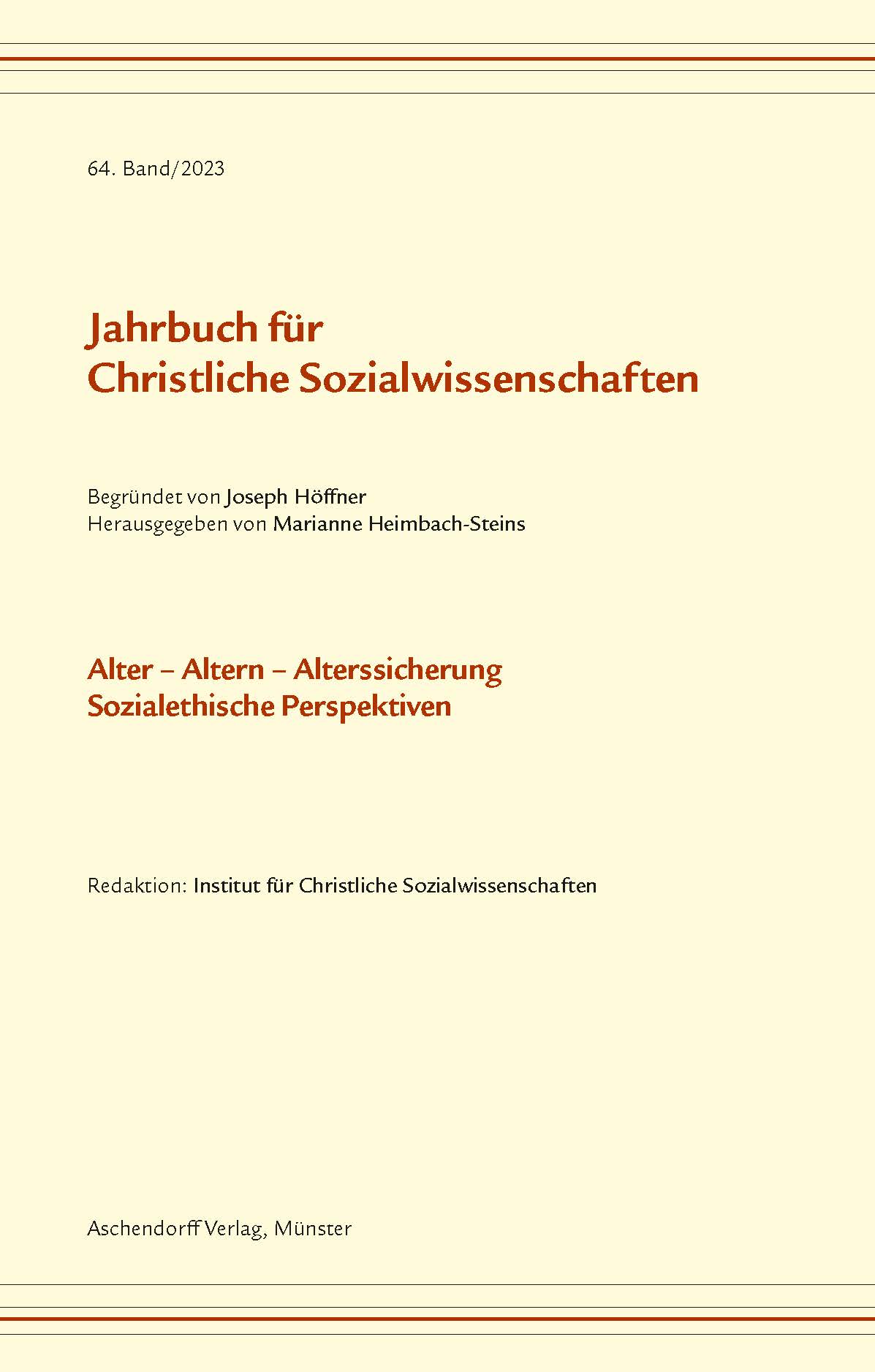Alterssicherungspolitik: Wirtschafts- und sozialethische Herausforderungen
DOI:
https://doi.org/10.17879/jcsw-2023-5064Abstract
Demographic change continues to be one of the major challenges for the statutory pension system in Germany. Due to the expected increase in the pension case ratio in the coming years, the Pay-As-You-Go pension system faces a conflict of objectives between contribution stability on the one hand and an adequate level of benefits on the other. Without fundamental changes in benefit legislation, it is already foreseeable that old-age poverty in Germany will increase significantly in the upcoming decade. At the same time, for reasons of intergenerational equity and the sustainability of pension financing, it is not possible to impose demographic burdens unilaterally on the younger generation. Thus, demographic change calls for a critical review of the design principles of the old-age pension system in Germany.
This article addresses this discussion and first shows that the basic principles of wage-related and contribution-equivalent pensions have already been modified several times in the past. Subsequently, we evaluate critically current proposals for reforming old-age security policy, such as increased tax financing or increased funding, from the perspective of economic ethics. Finally, we identify the lack of integration between benefit-oriented insurance and means-tested welfare as a central problem of the German old-age security system. The article concludes with a proposal for a hybrid old-age security system that integrates insurance and welfare benefits.

